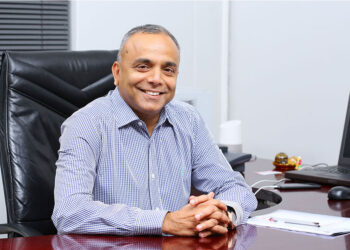Executive Profile:
Thapelo Tsheole is the outgoing Chief Executive Officer of the Botswana Stock Exchange, a position he has held since January 2016. A seasoned Financial Markets expert, Tsheole has a cumulative work experience of over 15 years.
Academically, Tsheole holds a Bachelor of Social Sciences (Single Major Economics) from the University of Botswana and a Master of Commerce (MComm) in Financial Markets from Rhodes University in South Africa. Additionally, he holds a Masters in Business Administration (MBA) from the Graduate School of Business in South Africa. He has also completed several financial markets programmes as well as a Leadership Development Programme at the University of Stellenbosch Business School.
Tsheole has extensive financial markets experience in Capital Markets, Forex, Structured Products and the Financial Market Regulation. He was appointed CEO of the Botswana Stock Exchange (BSE) in January 2016, following a short stint as Deputy CEO at BSE since February 2014.
His career at BSE began in February 2007 when he was appointed Product Development Manager.
In addition to having led both regional and continental stock exchanges associations, Tsheole sat on boards of the following entities: Botswana Accountancy Oversight Authority, Medicines Regulatory Authority of Botswana, ACHAP Botswana and ACHAP International.
As you depart the BSE, what are some of the key innovative initiatives spearheaded by the bourse between 2016 and 2024 that you are proudest of?
There are a number of them but the demutualisation of the BSE, which happened finally in 2018, stands out. It was a great moment because it allowed the BSE to become a company with a number of shareholders.
Another milestone was the successful listing of the Botswana Telecommunications Company (BTC), which was the first privatised listed entity. The mechanisms utilised in that listing that were quite commendable.
The number of Exchange Traded Funds (EFTs) we have is also a notable milestone. We currently have four but we expect to list an additional seven next month, pending regulatory approval. This will lead to the BSE having 11 EFTs.
Within the EFTs, the increase in the trading volumes was also fundamental because it is one thing to list an instrument and it is another thing for the instrument to get traded.
One of our outstanding initiatives was the introduction of the Tshipidi Mentorship Programme, which we tailored to offer mentorship to medium-sized companies that were early to list in the medium to long term. Therefore, we ended up having up to 60 companies graduating from the programme.
The increase in the number of fixed income instruments, coming from about 30 to 110 is another great achievement. Especially the introduction of the Commercial Paper as an asset class in the BSE.
The joining of World Federation of Exchanges and the accreditation to the British Revenue and Customs are also some of the great achievements recorded over this period.
You led the BSE through periods of varying fortunes over the 8 years. With one of those periods being the recent global pandemic; what leadership philosophies have you relied on to mitigate the effects of these periods?
The global pandemic provided an opportunity for us to become innovative as we were able to reach out to many listed entities and to help them mitigate the lowest points of this period.
We also sold the stock exchange as a platform where if companies couldn’t get capital elsewhere, they were able to issue more shares to get capital and by issuing more shares we as BSE were also able to earn some significant revenue in terms of transactions. That is how we managed to survive.
Our strong strategy and financial base also helped us to weather the storm of the pandemic.
What was your biggest take-away from these periods of adversity?
The biggest take-away was that as companies and leaders should always be aware that things can go wrong at any moment. Nobody knew at the start of 2020 that the world would be facing challenges like total closure.
It is thus important to have an understanding that doing business in a sustainable manner in the long term can assist to survive any situation.
How has the BSE leveraged technology and digital transformation under your leadership, and what impact has this had on market efficiency and accessibility?
During my leadership, the BSE continued to upgrade its systems, especially the automated trading system (ATS) to be at par with other global markets. In doing so the bourse was able to get a lot confidence from investors, especially international investors, whose participation increased from around 20 percent to about 50 percent of activity in the market.
We also replaced our old CSD system with a modernized system that comes with a number of great capabilities. We are going to introduce security lending and borrowing and to give investors access to their accounts on mobile phones or computers wherever they are. This is a great innovation that we will release next month.
We also introduced the stock market simulator, which is a tool aimed at teaching investors to trade on the market, after which they will be able to gain full market participation.
Could you share a notable example of a strategic partnership or collaboration you facilitated that has enhanced the BSE’s competitiveness either continentally or globally?
The BSE’s joining of the World Federation of Exchanges as a full member allowed us to be accredited as an investment destination for a number of global asset managers. Therefore, this a strategic partnership that we got into to enhance the stature of our market.
This is also complemented by the joining of African Exchange Linkages Project, which links all other members and then qualifying to be a participating exchange. This also added to the stature of our market.
ESG has become a guiding framework in the financial sector, both banking and non-banking. In what way has the need for a sustainability-focused approach informed the bourse’s growth?
We have managed to stand among the few exchanges in Africa who have launched guidelines on ESG. We are also actively participating in Green Bond and this is exemplified by the launch of the Green Bond with ABSA Botswana in December 2023. We are also seeing one or two entities that want to do a Green Bond in the near future, therefore sustainability has always been at the core of the institution.
The BSE will also be producing an integrated reporting system. As an exchange, we have played a crucial role in spearheading a lot of sustainability issues. That is why we were one of the exchanges that joined the United Nations Sustainable Stock Exchange Initiative back in 2016.
How have you fostered a culture of transparency and accountability within the BSE, and why are these values essential in the context of a national stock exchange?
Stock exchange operates on two principles; 1. The investors have to have confidence in the market and 2. The stock market has to have integrity. As one of our values, we are always transparent in the decisions that we make. We have always been very open to questions and to people who want to understand how we work.
Even if we may differ somewhere with people, we are able to be interactive and engaging with them. This culture of interaction and integrity was able to drive the confidence of the market because those are the cornerstones of a national bourse.
Where the regulatory environment is concerned, does it remain conducive for the BSE to execute its mandate, or are there areas where reforms are needed?
Definitely. There are areas where reforms are needed but not to the extent that the environment is not conducive. The only reform that is actually needed is we need government to divest from the exchange from 76 percent shareholding to a significantly lower amount.
This is because it is not government’s business to have large shareholding in an exchange. An exchange needs to be owned by private individuals and government should only provide a conducive environment. It is encouraging that government is in agreement with us in that aspect.
What role has education and outreach played in your tenure at the BSE, particularly in terms of promoting financial literacy and enhancing public understanding of the stock market?
Having taken over the leadership of the BSE when the bourse had about 22 000 investors, I leave the exchange with this figure having increased by 500 percent. There are more than 100 000 investors in the country and that is a clear example that we took financial literacy very seriously.
In terms of listed entities; we empowered them to know how they can come to the market; and when they are in the market, how they can the raise capital. These are some of the impactful activities that I was able to achieve during my tenure.
Could you tell us a bit about the work done in your role as Chairperson of the SADC Committee of Stock Exchanges?
We have achieved a lot. One initiative that stands out is the SADC Interconnectivity Hub Project, which now has funding from the African Development Bank. Its implementation will soon be underway.
The harmonising of listing rules is also a noteworthy development that is still ongoing and that will soon be completed.
Lastly, and going back to the importance of sustainability, I managed to lead SADC Green Bond Programme, which is a regional program involving 16 stock exchanges in order to spearhead green financing, for which we managed to secure funding.
As you prepare to transition from your role, what advice would you give to your substantive successor in order to continue driving the growth and success of the BSE in the coming years?
Ethics are very important. The ability to be an ethical leader is very important generally, but it is more critical at the BSE because market integrity and confidence should be protected at all levels. Those two aspects work hand-in-hand. That’s the advice I will give to my successor.




